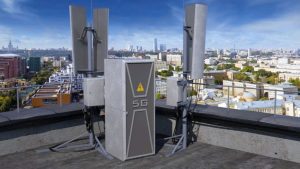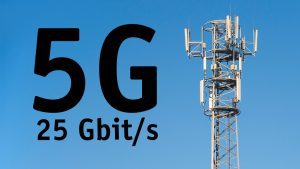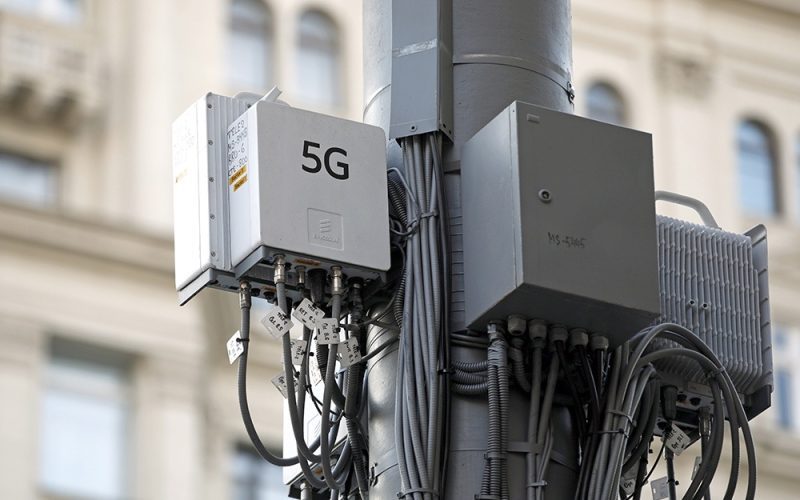The Impact of 5G on Internet Speed: What You Need to Know
The advent of 5G technology is set to change the landscape of internet connectivity forever. As the world moves toward faster, more reliable, and more efficient networks, 5G promises to bring profound improvements to internet speed and connectivity. But how exactly does 5G impact internet speeds, and what benefits can we expect as consumers, businesses, and communities? In this article, we will explore how 5G technology will affect internet speeds, what it means for different industries, and the ways it will transform daily life.
1. What is 5G?

Before we discuss the impact of 5G on internet speeds, it’s important to understand what 5G actually is. 5G, or fifth-generation technology, is the latest evolution of wireless communication technology that follows the 4G (LTE) standard. While 4G revolutionized mobile internet by allowing faster downloads and more reliable service, 5G takes things to an entirely new level.
5G is designed to operate on higher frequencies and uses wider bandwidth compared to its predecessors. This enables it to deliver significantly faster speeds, lower latency, and improved connectivity. 5G’s millimeter waves, which operate in higher frequency bands, allow for the transmission of much more data at once, making it ideal for not only mobile devices but also other connected technologies such as autonomous cars, industrial machines, and smart cities.
2. How 5G Increases Internet Speed
So, what makes 5G so much faster than previous generations? The main reasons are:
Higher Frequency Bands
5G uses higher frequency bands, specifically in the sub-6 GHz and millimeter-wave (24 GHz and above) spectrum. These bands are capable of carrying much more data at once compared to 4G’s lower-frequency bands. By using these higher frequencies, 5G can deliver more bandwidth to each device, which translates into faster download and upload speeds.
Wider Bandwidth and More Data Capacity
5G networks can use a wider spectrum of frequencies than 4G, allowing more data to be transmitted in a given amount of time. This means that more devices can connect to the network simultaneously without causing congestion or slowing down speeds. For instance, with 5G, users can expect peak download speeds that can reach up to 10 Gbps, which is up to 100 times faster than what 4G can offer. This increase in capacity helps accommodate the growing number of connected devices and internet traffic.
Low Latency
Latency refers to the time it takes for data to travel between a sender and a receiver. 5G significantly reduces latency to as low as 1 millisecond (ms), compared to 30-50 milliseconds with 4G. This reduction is critical for real-time applications, such as online gaming, video conferencing, and autonomous driving, where split-second decisions can make all the difference.
3. Expected Internet Speeds with 5G
While theoretical speeds of 5G can reach up to 10 Gbps, real-world speeds depend on a variety of factors, including geographic location, network congestion, and the type of device used. In most urban areas with good 5G coverage, consumers can expect average download speeds ranging from 100 Mbps to 300 Mbps, which is significantly faster than the average speeds delivered by 4G.
For Consumers
For the average internet user, these faster speeds mean a variety of improvements in their online experience:
- Faster Downloads: Downloading large files, whether movies, software, or music, will be nearly instant with 5G. A high-definition movie could be downloaded in just a few seconds.
- Better Streaming: 5G’s high speeds and low latency make streaming high-definition (HD) and 4K videos smoother, even in areas where Wi-Fi might struggle. No more buffering during your favorite shows or video calls.
- Improved Mobile Gaming: Gamers will benefit from near-instant load times and no lag during gameplay, thanks to 5G’s low latency and fast speeds.
For Businesses
Businesses that rely on large file transfers, cloud services, or real-time communication can expect a huge boost. With 5G, they will experience:
- Faster Upload/Download Speeds: Cloud-based services, video conferences, and data analysis tasks will be quicker, enabling faster decision-making.
- Improved Remote Work Tools: Employees working remotely will have access to seamless video conferencing, faster data sharing, and better access to cloud applications. This could increase productivity and collaboration.
For Cities and Communities
5G will have a major impact on smart cities and the Internet of Things (IoT). Here are some examples:
- Smart Traffic Management: 5G can connect traffic signals, vehicles, and road sensors in real time, improving traffic flow and reducing congestion.
- Public Safety and Health Monitoring: 5G enables more reliable real-time monitoring of emergency situations, healthcare devices, and city-wide sensors. This could improve response times in crises.
4. The Real-World Impact: Examples of 5G’s Speed Advantages

The real-world impact of 5G will be felt in various industries and by individuals alike. Let’s take a look at some examples of how 5G internet speeds will benefit everyday users and businesses:
Streaming and Entertainment
With 5G, streaming services will be able to deliver content in higher resolutions, such as 4K and even 8K. Streaming platforms like Netflix, Hulu, and YouTube will be able to deliver ultra-high-definition content without the annoying buffering issues that sometimes occur with 4G networks. Even during peak hours, 5G’s higher capacity will prevent slowdowns.
For example, a user with 5G can stream an entire season of a show in 4K resolution without interruption. They could also download large movies or games in a matter of minutes, rather than waiting for hours.
Healthcare and Telemedicine
With 5G, the healthcare sector is set to experience massive improvements. Telemedicine, where doctors conduct remote consultations, will benefit from 5G’s low latency and high-speed data transfer. Doctors can use high-definition video to interact with patients, even conducting virtual check-ups or diagnostic tests in real-time.
Moreover, remote surgeries are becoming a possibility with 5G technology. Surgeons could use robotic arms controlled through 5G networks to operate on patients from thousands of miles away.
Autonomous Vehicles
Self-driving cars rely on instant communication between the car and the infrastructure around it (like traffic signals, road signs, and other vehicles). 5G’s low latency is essential for ensuring the smooth operation of autonomous vehicles. It allows them to respond quickly to their environment and make decisions almost instantaneously, improving safety and efficiency.
For instance, a self-driving car can communicate with nearby vehicles and traffic lights to optimize routes, prevent accidents, and ensure smooth traffic flow, all in real-time.
Smart Homes
With 5G, smart homes will become even more interconnected. Devices like security cameras, thermostats, lights, and refrigerators will communicate seamlessly, making homes more energy-efficient and secure. For example, a smart thermostat could adjust the temperature based on real-time data received from your phone, optimizing comfort and energy use.
5. Challenges and Limitations of 5G
While the benefits of 5G are impressive, there are still some challenges and limitations that need to be addressed:
Coverage Limitations
Although 5G is expanding rapidly, coverage is still limited in many regions, especially in rural or remote areas. While urban centers are quickly adopting 5G, full global coverage will take several years to achieve.
Infrastructure Costs
Building out 5G networks requires a significant investment in infrastructure. The deployment of small cells, which are necessary for 5G’s higher frequencies, requires more infrastructure than 4G. This can be expensive for mobile carriers and may take time to deploy everywhere.
Device Compatibility
To experience 5G, users need a 5G-enabled device, such as a smartphone or tablet. While newer models of smartphones (like the iPhone 12 and later) support 5G, older models do not. Consumers who want access to 5G speeds will likely need to upgrade their devices.
Signal Interference
5G uses millimeter-wave frequencies, which are more easily blocked by physical objects like buildings, trees, or even rain. This could make 5G less reliable in certain environments compared to lower-frequency 4G networks.
6. What Does the Future Hold for 5G?
As 5G continues to roll out globally, we can expect even more improvements and innovations. The next phase will involve the rollout of standalone 5G networks, which operate independently from 4G infrastructure. This will enable faster speeds and more reliable connections.
Looking further into the future, 6G research is already underway, and it promises to bring even faster speeds, greater capacity, and new applications.
Conclusion
5G is set to revolutionize the way we experience the internet, offering speeds up to 100 times faster than 4G and transforming industries from healthcare to transportation. While there are still challenges to overcome, including coverage expansion and infrastructure costs, the benefits of 5G are undeniable. From gaming and entertainment to smart cities and autonomous vehicles, the impact of 5G on internet speed will continue to unfold in exciting and transformative ways. As 5G becomes more widely available, the world will become more connected, more efficient, and faster than ever before.
FAQs About 5G and Internet Speed
How fast is 5G compared to 4G?
5G is up to 100 times faster than 4G, with speeds reaching up to 10 Gbps, compared to 4G’s max of 1 Gbps.
What are the benefits of 5G internet speeds?
5G offers faster downloads, better streaming, and lower latency, making it perfect for gaming, HD video streaming, and real-time communication.
Is 5G available everywhere?
No, 5G coverage is still being rolled out. It’s available in most cities, but rural areas may not have full access yet.
Will 5G replace Wi-Fi?
5G won’t replace Wi-Fi but will complement it. It provides reliable internet when Wi-Fi isn’t available, especially for mobile users.
Do I need a new phone to use 5G?
Yes, to use 5G, you’ll need a 5G-enabled device. Most recent smartphones support 5G.











